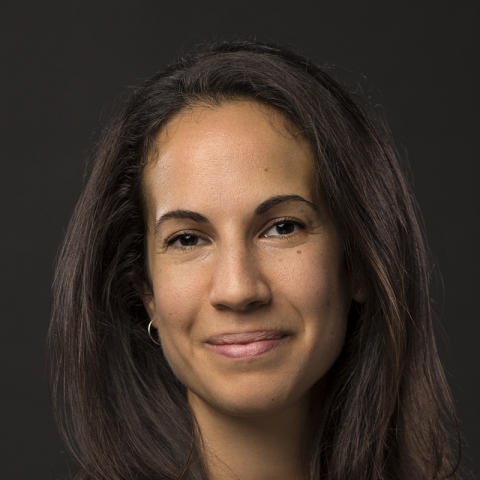Sharon Wolf
Dr. Sharon Wolf is an Associate Professor in the Graduate School of Education, Human Development, and Quantitative Methods division. She is trained as an applied developmental psychologist and studies how children’s family and educational environments shape their development, focusing on underserved populations in the United States and in low-income countries.
Dr. Wolf’s research tests the effectiveness of theoretically informed policy solutions designed to promote childhood development and learning through randomized field experiments, including cash transfers, teacher professional development, and parent engagement programs.
Selected Publications
“Sociodemographic Predictors of Depression and Anxiety Symptomatology among Parents in Rural CôTe D’Ivoire.” Journal of Affective Disorders 338, (2023): 1-9. Accessed May 1, 2024.]
Background: In Côte d’Ivoire, cocoa farming is a widespread practice in rural households, an occupation with increased risks of depression and anxiety exacerbated by economic instability. We used the Goldberg-18 Depression and Anxiety diagnostic tool to identify predictors of depressive and anxiety symptomatology among a sample of parents in rural cocoa farming communities.
Methods: In a cross-sectional survey, the Goldberg-18 was administered to Ivorian parents (N = 2471). Confirmatory factor analysis (CFA) was conducted to confirm the factor structure of the assessment tool, and Ordinary Least Squares (OLS) regression with clustered standard errors was used to identify sociodemographic predictors of symptomatology.
Results: CFA showed adequate fit statistics for a two-factor model measuring depressive and anxiety symptoms. Among respondents, 87 % screened positive for requiring further referral for clinical diagnosis. Sociodemographic predictors of depressive and anxiety symptoms were similar for males and females. For the total sample, higher monthly income, more years of education, and belonging to the Mandinka ethnic group predicted fewer depressive and anxiety symptoms. In contrast, higher depressive and anxiety symptomatology were associated with age. Single marital status predicted increased anxiety but not depressive symptoms for the full sample model and the female only sample, but not the male sample.
Limitations: This is a cross-sectional study.
Conclusions: The Goldberg-18 measures distinct domains of depressive and anxiety symptoms in a rural Ivorian sample. Age and single marital status are predictors of increased symptoms. Higher monthly income, higher education, and certain ethnic affiliations are protective factors.
(2020). Family income and young children’s development. The Future of Children, 30(2), 191-211.
Is income during children’s earliest years a key determinant of long-term child and adult success in the long run? The research to date, Christopher Wimer and Sharon Wolf write, suggests that it is. Wimer and Wolf review substantial descriptive evidence that income can enhance child development and later adult outcomes, and that it does so most strongly during children’s earliest years.
Next, they wrestle with the question of whether this relationship is causal. After outlining the challenges in identifying such causal relationships, they describe a number of studies that purport to overcome these challenges through quasi- or natural experiments. Among other topics, the authors examine how family income affects the outcomes of young children compared to those of older children, and how its effects vary among poor, low-income, and higher-income families. They also look at the evidence around other dimensions of income, including nonlinear relationships between income and key outcomes, instability in income versus the absolute level of income, and various forms of income, and they review the evidence for impacts of in-kind or near-cash income supports.
Finally, Wimer and Wolf highlight some recently launched studies that will shed further light on the relationship between income and development in children’s earliest years, and they suggest how policy might better provide income support to low-income families and their children.
(2021). Depressive and anxiety symptoms in early-childhood education teachers: Relations to professional well-being and absenteeism. Early Childhood Research Quarterly. 55; 275-283
This study investigated how early childhood education teachers’ (N = 444) depressive and anxiety symptoms predicted their professional well-being outcomes and absenteeism over the course of one school year in Ghana. Higher anxiety and depressive symptoms predicted lower job motivation and job satisfaction and higher levels of emotional exhaustion at the end of the school year. Increased depressive symptoms were further associated with more days absent over the course of the school year. Findings point to the importance of considering teachers’ mental health for early educational quality. Implications for policy and practice are discussed.


